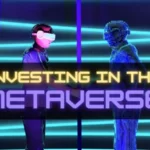Summary: In this Article, you’ll get to read about —
Whether it’s the thrill of being constantly challenged or at the cutting edge of technology innovation, or simply that the job is financially rewarding – the DevOps engineer is in the sweet spot of fulfilling the tremendous demand.
The transition is smooth if you’re already familiar with the technical skills associated with software development, networking, or operations.
You could be asking yourself if becoming a DevOps engineer is the right career move, or do you have the skills to become one? This article could help you discover your potential.
The 8 Skills That Mark The DevOps Engineer
Domain experts in enterprise kubernetes container platform kubeshpere explain the unique combination of skills and expertise that make a DevOps engineer:
1. The Culture Of Sharing
Since DevOps is all about nurturing an ecosystem and culture of sharing, it helps to have good interpersonal skills. Feeling empathy for others’ problems and helping your team achieve their full potential are skills that come in handy.
2. Grounding In Python
Foundation-level knowledge of coding and a coding language like Python would give you a head start in writing scripts to call various APIs or use shell scripts to operate files.
3. Automation Of Building/Testing
Automation is at the core of DevOps and is mainly responsible for the consistency, reliability, and traceability possible through DevOps engineering. Automated build and test are central to the DevOps culture, and familiarity with Selenium, Postman, the Robot Framework, or other automated testing tools is a bonus.
4. Containerisation
Containerisation consolidates software, the OS, dependencies, and components into containers for swift deployment on-premise or in the cloud. Organizations leveraging containers (mainly Docker) for handling workloads pay a high premium for hands-on skills in this field.
5. Configuration Mangement
The DevOps Engineer spends considerable time automating and configuring systems that perform the work. Whether it’s Infrastructure-as-a-code (IaaC) or configuration-as-a-code (CAAC), you are automating the IT infrastructure and the configuration to make sense for the application. So configuration management is an essential skill.
6. Version Control System
The success and speed from development to deployment will depend on how effectively you use the version control system or VCS tools to keep track of the changes made to the source code, assets, and documents vital to the project.
7. Package Management
The DevOps culture places a high premium on sharing and needs engineers working in different groups or projects to use shared resources. One solution universally deployed is for DevOps engineers to pack several features and functionalities into a “package” that can fulfill any software developer’s need in any environment. The creation of package repositories is a vital skill.
8. Networking Skill
The coding error might be remediable, but what do you do with network issues? Networking skills are helpful in a DevOps role because you get a deeper understanding of certificates and routing and how networks function. And knowing network configuration helps you in containerization.
How Do You Decide If DevOps Is The Right Career Choice For You?
If the answer is affirmative in the following scenarios, a career in DevOps engineering is probably right up your alley.
- You want to move from calibrated manual deployments to automation that defines the DevOps working environment. Then, you’ve ticked off a big yes.
- You are passionate about closing the gap between software development and operations using good communication processes and the right tools.
- You love fine-tuning and resolving data flow issues to establish and maintain applications’ infrastructure. Even if the company subscribes to a cloud service, you’ll be ready to configure the infrastructure to make applications run faster.
You know that legacy systems are slow to change or adopt new practices, umpteen things may go wrong, and the journey could be frustrating. But, you are willing to trudge the extra mile, and work outside of regular hours, because you are passionate about making systems work and meeting high expectations, no matter what happens.
Conclusion
DevOps is an excellent career to get into in 2022 and beyond if you’re at the crossroads between development and operations. High salaries and career growth that’s upwardly mobile make the future incredibly attractive. Remove all hesitation and plunge right in because the DevOps tide favors you.



